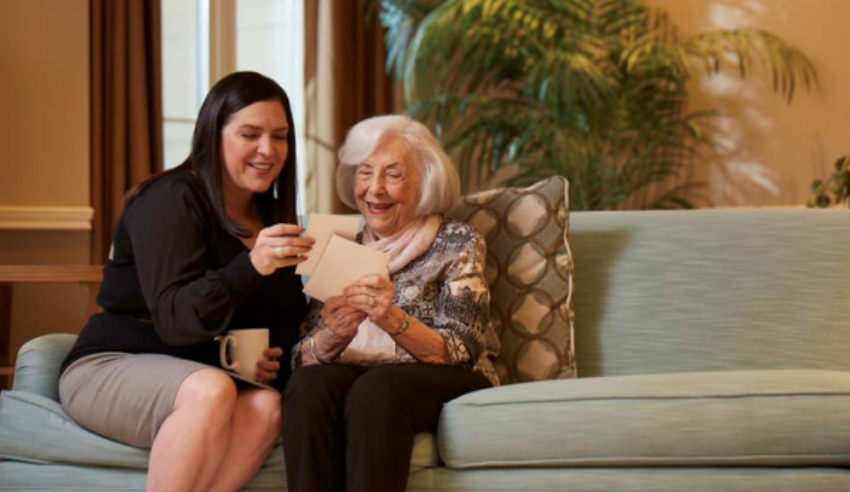Understanding Different Senior Living Options
When you’re first starting to plan long-term care for yourself or a loved one, it can be emotional and overwhelming. Although some senior living options may seem similar at first, they are distinctly different, each with its own features, benefits and considerations.
To find the best fit, it’s important to understand the different types of senior living experiences and identify your needs—now and in the future. Because every person and situation is unique, what works for one senior and their family may not work for another.
An Insider’s Guide to Senior Living helps you understand your options and make more informed decisions. Discover the variety of senior living choices, including advantages, considerations, financing and more.
The 5 Most Common Senior Living Options
1. Active Adult Communities
Active adult communities are restricted to older adults—typically ages 55 and older. They may include senior apartments or homes that are owned and maintained by residents, with an HOA fee to cover exterior management and the upkeep of shared spaces and amenities. They often offer:
- Community rooms
- Swimming pools
- Fitness centers
2. Independent Living
Independent living communities are ideal for healthy, active seniors who do not require daily personal care or health care. Unlike home care or a senior apartment community, independent living communities offer care services and hospitality services that make life easier and more enjoyable, including:
- Dining services
- Concierge and transportation services
- Housekeeping and linen services
- Social and recreational activities
3. Assisted Living
Assisted living communities provide seniors the opportunity to enjoy a high quality of life while receiving personal care from trained employees and prompt access to medical or emergency care when needed. Residents in assisted living are typically unable to live independently but don’t require continuous, 24-hour medical care services. Services include:
- Some senior care and medical services, including wellness checks and medication management
- Nurses on site to manage care
- Specially trained caregivers for around-the-clock support
- Assistance with activities of daily living
- Transportation
- Dining services
- Housekeeping and laundry
- Social and recreational activities
4. Memory Care
Memory care is a more comprehensive form of senior living that provides specialized levels of care for people with cognitive issues such as mild cognitive impairment (MCI) or dementia. While there are stand-alone memory care facilities, many assisted living residences also offer specialized memory care programs and secured areas designed to provide an enriching and safe environment for residents with Alzheimer’s disease and other dementias. Memory care includes all the services and amenities of assisted living while uniquely supporting each resident’s individual needs and abilities. Memory care is best for seniors who need:
- Assistance with activities of daily living
- Health and medical services
- Transportation
- Licensed, skilled 24-hour nurse availability
- Medication management
- Wellness checks
- A carefully monitored, secure environment
- Personalized care and memory programs
- Dining services
- Housekeeping and laundry
- Social and recreational activities
5. Skilled Nursing (Nursing Home)
Skilled nursing facilities, also known as nursing homes, focus on medical care and lack the amenities and programs of most assisted living communities. In general, most nursing home residents have severe, chronic physical or mental health conditions that require 24/7 skilled nursing care and supervision and leave them unable to live independently. In most cases, nursing homes are licensed for Medicare/Medicaid reimbursement. At skilled nursing facilities, most residents require:
- 24/7 nursing services, including registered nurses (RNs), licensed practical nurses (LPNs) and certified nursing assistants (CNAs)
- Assistance with activities of daily living
- Assistance with daily health care needs
- Continuous supervision
- Medication management
- Palliative care
- Specialized rehabilitation service
Sign up to get your free, in-depth guide today. Download guide »

